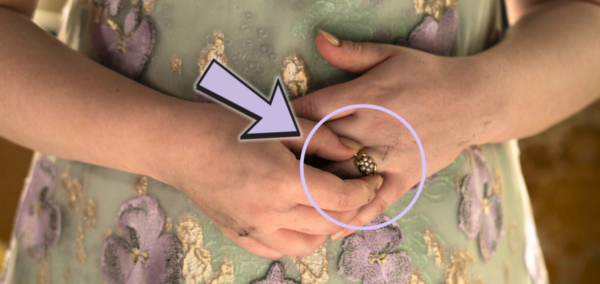
‘It’s heartbreaking’: Afghan activist and LSE grad on the Taliban’s university ban for women
‘Whatever is happening in Afghanistan is completely in contradiction with Islam’
Last month, Afghanistan’s Taliban-run government barred women and girls from universities in the country “until further notice.”
This is the latest escalation in the regime’s continuous efforts to deprive half of the country’s population of education. It came after previous decisions to only re-open secondary schools for boys after the US’s withdrawal from the country and strict implementations of gender-separate classrooms, Islamic dress code, and restricted subject selection for women in universities.
The newest decree has been met with international backlash and protests within the country. One demonstration saw dozens of women marching through the streets of Kabul to chants of “All or none. Don’t be afraid. We are together.” Some Afghan men have also expressed solidarity, including over 50 male university professors who have resigned after the ban.
The London Tab spoke to Sveto Muhammad Ishoq, an Afghan women’s rights activist who recently graduated with a Master’s degree in gender development in globalisation at LSE, to learn more about the situation and what can be done.
Beyond heartbreaking news – the Taliban just confirmed that women are barred from going to universities and pursuing higher education. This is unacceptable and is clearly contrary to Islamic teachings. pic.twitter.com/QBWJF2o0Ud
— Sveto Muhammad Ishoq | سویتا اسحق (@sveto_ishoq) December 20, 2022
‘It was truly heartbreaking’
When Sveto heard the news, she thought “it was truly heartbreaking.”
Having experienced the Taliban attacking and closing her university in Afghanistan for eight months, she empathised with “the pain and the struggles Afghan women are facing right now, their uncertainty about the future, and how their dreams and hopes are being stripped away from them.”
But despite going through similar horrors, the decision still came as a shock to Sveto.
Most Read
“There were a lot of rumours that they would reopen secondary schools for girls. But instead of opening these schools, they banned them from going to universities.
“I was honestly not expecting they would go this far in banning girls from getting an education.”
The Afghan girls are not only deprived from going to schools and universities, but also from madrasas (religious institutions). This video is the closure of Al-Tahzib madrasa in the face of women in Kabul.
No educational institution is left for Afghan women. #LetHerLearn pic.twitter.com/HzoPqmx3v7
— Sveto Muhammad Ishoq | سویتا اسحق (@sveto_ishoq) December 22, 2022
‘There is no space for them to feel safe’
The tightening restrictions by the Taliban also compromise the rights of Afghan women and girls beyond education.
Sveto said: “The Taliban are trying hard to move Afghan women, to transfer them from the public sphere to the private sphere. So right now, literally, women in Afghanistan have no space left in the public sphere.
“Everything is banned. They’re banned from education, and many jobs are being stripped away from them. There is no space for them to feel safe or pursue their dreams and hopes as active members of society. Everyone is sad and devastated and mad at these policies.”
The Taliban attempted to explain the university ban as retribution for people allegedly not following the rules they imposed based on their interpretation of the Sharia (Islamic) Law. But Sveto stressed that “whatever is happening in Afghanistan is completely in contradiction with Islam.”
“Our religion believes that it is compulsory for both men and women to seek knowledge and get educated. The first word revealed in Islam [the first word of the Qu’ran] was the word ‘read,’ so education for everyone, including women, is a big part of our religion.”
Echoing this, many Muslim-majority nations – like Qatar, Saudi Arabia, and Turkey – are among the ones to condemn the decision.
All Afghan women and girls want is their #Islamic rights. The right that Allah (SWT) has given them is being stripped away from them. Afghan women are not alone in the fight for their rights – Allah is with them. #LetHerLearn #LetHerWork
— Sveto Muhammad Ishoq | سویتا اسحق (@sveto_ishoq) December 25, 2022
‘Afghanistan will always be my home’
Similarly, Sveto doesn’t want the Taliban and current events to represent Afghanistan as a country.
“When people think of Afghanistan, I want them to think of passionate people, especially the Afghan youth. People should know how thirsty, determined, passionate, and hardworking we are about bringing positive changes to our communities and societies. But we need support.”
Sveto outlined several ways people and universities in the UK can help.
She said individuals could contribute by “taking this issue back to the news headlines” when it fades out of media attention, writing to MPs to ask for substantive actions from the government, and supporting local and international organisations providing resources for Afghan women. She also said it’s “very crucial” for UK universities to offer scholarship programs or alternative ways of education for Afghan women and girls.
Sveto thinks this ongoing deprivation of women’s rights “shouldn’t be an issue like any other issue [that] go away so quickly after they come up.”
“Nobody cares anymore after two days, but we need to ask for action rather than empty statements. We need to push the governments to do more and to take action because we don’t have more time.
“We don’t have more time for empty statements and don’t have any more energy.”
When the #Taliban attacked my undergraduate university in 2016 I almost lost hope. I thought that the dream of graduating from university and my dream of getting a #Master’s degree abroad and better my community vanished in front of my eyes. pic.twitter.com/hotatUzfrz
— Sveto Muhammad Ishoq | سویتا اسحق (@sveto_ishoq) December 13, 2022
Despite being in the UK since Afghanistan fell to the Taliban, the work Sveto does as an activist is still solely dedicated to her country. For example, she founded a project to fight stereotypes about Afghan women, launched an all-party parliamentary group for Afghan women and girls to work with MPs in the UK, and continues to raise awareness about issues like the rights of women and refugees from Afghanistan on her social media platforms.
She told The London Tab: “Whatever I do in this life, whatever activities and activism and everything is purely for my country Afghanistan.
“Because to me, Afghanistan is my home.”
The Afghan Embassy in London has been contacted for comment.
Related stories recommended by this writer:
• Russell Group unis offering free courses to Afghan women until Taliban lifts ban on learning
• Young Afghans based in the UK are struggling to help their families back home
• This is how to show support and help for those in Afghanistan



















